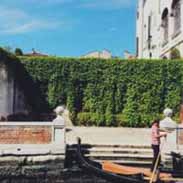Chapter 15: Aging and the Elderly
Unlock all answers in this set
Unlock answersquestion
gerontology
answer
the study of aging and the elderly
question
age stratification
answer
the unequal distribution of wealth, power, and privilege among people at different stages of the life course
question
gerontocracy
answer
a form of social organization in which the elderly have the most wealth, power, and prestige
question
caregiving
answer
informal and unpaid care provided to a dependent person by family members, other relatives, or friends
question
ageism
answer
prejudice and discrimination against older people
question
disengagement theory
answer
the idea that society functions in an orderly way by removing people from positions of responsibility as they reach old age
question
activity theory
answer
the idea that a high level of activity increases personal satisfaction in old age
question
euthanasia
answer
assisting in the death of a person suffering from an incurable disease; also known as mercy killing
question
structural-functional approach of aging
answer
theory of aging that points to the role that aging plays in the orderly operation of society; includes the disengagement theory
question
symbolic-interaction approach of aging
answer
theory of aging that focuses on the meanings that people attach to growing old; includes the activity theory
question
social-conflict approach of aging
answer
theory of aging that highlights the inequalities in opportunities and social resources available to people in different age categories; capitalist emphasis on efficiency leads to devaluation of less productive, including elderly
question
challenges of aging
answer
1. realization that one's life is nearing an end 2. social isolation caused by death of friends/spouse, disability, retirment 3. reduced social prestige and loss of purpose in life due to retirement
question
reason for the increase in elderly
answer
low birth rates and increasing longevity
question
old-age dependency ratio
answer
ratio of working-age adults to non-working elderly people; current level 5:1
question
young old
answer
elderly who are beetween sixty-five and seventy-five; typically live independenly with good health and financial security; likely couples
question
old old
answer
elderly past the age of seventy-five; more likely to have health and money problems; dependent on others; mostly women
question
oldest old
answer
elderly over eighty-five, 68.3 percent are women
question
hunting and gathering
answer
societies that depend on physical strength and stamina; members grow old (around 30 yrs) become less active, economic burden, when food supply is short they are abandoned
question
pastoral, horticultural, and agrarian
answer
societies where most privileged are typically the elderly; elders, especially men, are honored and feared; respect of elderly explains widespread ancestor worship
question
industrial and postindustrial
answer
societies that give little power and prestige to the elderly;



